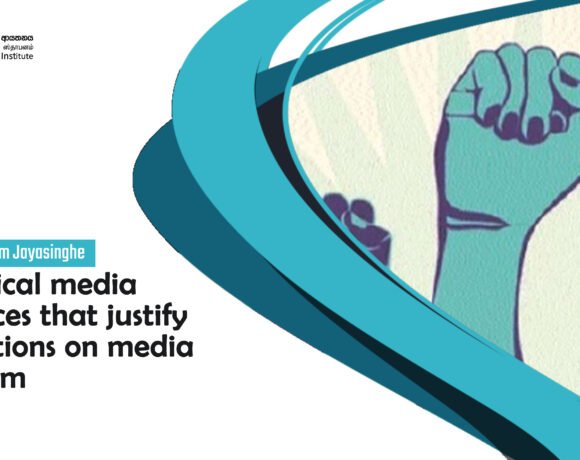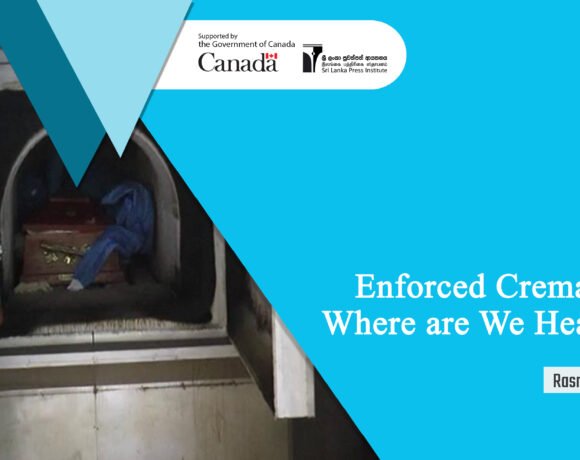
UNHRC Resolution 30/1, OHCHR Report and international accountability – Part 1
Harindrini Corea
In September 2015, the United Nations released a report on human rights violations committed in Sri Lanka during the final stages of the civil war and the surrounding period (2002-2011) in the aftermath of an international investigation. The government of Sri Lanka responded through the co-sponsoring of Human Rights Council Resolution 30/1 (UNHRC Resolution 30/1) on mechanisms and solutions to address such violations and ensure justice and sustainable peace. UNHRC Resolution 30/1 was then unanimously adopted by the members of the Human Rights Council in October 2015.
Limited implementation of UNHRC Resolution 30/1 by the then Sri Lankan government led to the adoption of a further two resolutions namely Resolution 34/1 (in March 2017) and Resolution 40/1 (in March 2019) with an extension of the timeline provided for performance of commitments under UNHRC Resolution 30/1.
UNHRC Resolution 40/1, dated March 2019 provides for the High Commissioner for Human Rights of the Human Rights Council to provide a written update on the status of commitments by the Sri Lankan government under UNHRC Resolution 30/1 to the Human Rights Council at the 43rd session (March 2020) and a comprehensive report at the 46th session in March 2021.
In February 2020, the Sri Lankan government withdrew its support for UNHRC Resolution 30/1 and made a commitment to provide domestic accountability measures to address human rights violations.
Part 1 of this Article looks at commitments under UNHRC Resolution 30/1 and Part 2 considers the Report of the Office of the High Commissioner for Human Rights which was published on the 27th of January 2021 prior to the 46th session of the UNHRC in March 2021.
Commitments under UNHRC Resolution 30/1
- Implementation of the constructive recommendations made in the report of the Lessons Learnt and Reconciliation Commission (LLRC) and the recommendations of the report of the Office of the High Commissioner.
- The responsibility of the government of Sri Lanka to prosecute perpetrators of gross violations of human rights and serious violations of international humanitarian law which constitute crimes under international law with a view to ending impunity.
- The government of Sri Lanka is to investigate all alleged attacks by individuals and groups on journalists, human rights defenders, members of religious minority groups and other members of civil society, as well as places of worship, and to hold perpetrators of such attacks to account and to take steps to prevent such attacks in the future.
- The government of Sri Lanka is to review the Public Security Ordinance Act and review and repeal Prevention of Terrorism Act and replace it with anti-terrorism legislation in accordance with contemporary international best practices.
- The government of Sri Lanka is to establish a commission for truth, justice, reconciliation and non-recurrence, an office of missing persons and an office for reparations and allow each mechanism the freedom to obtain financial, material and technical assistance from international partners, including the Office of the High Commissioner.
- The government of Sri Lanka is to establish a judicial mechanism with a special counsel to investigate allegations of violations and abuses of human rights and violations of international humanitarian law.
- The government of Sri Lanka is to introduce effective security sector reforms as part of the transitional justice process and increase training and incentives focused on the promotion and protection of human rights of all Sri Lankans.
- The government of Sri Lanka is to ensure return of land to its rightful civilian owners, and the ending of military involvement in civilian activities, the resumption of livelihoods and the restoration of normality to civilian life.
- The ratification of the International Convention for the Protection of All Persons from Enforced Disappearance by the government of Sri Lanka for the criminalisation of enforced disappearances and issuing of certificates of absence to the families of missing persons as a temporary measure of relief.
- The government of Sri Lanka is to ensure that all Provincial Councils are able to operate effectively, in accordance with the thirteenth amendment to the Constitution of Sri Lanka;
The government of Sri Lanka is to ensure that instructions are issued clearly to all branches of the security forces that violations of international human rights law and international humanitarian law, including those involving torture, rape and sexual violence, are prohibited and that those responsible will be investigated and punished, and address all reports of sexual and gender-based violence and torture.








